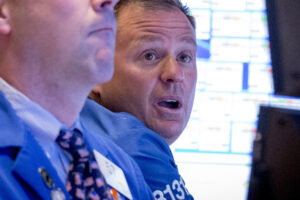By Francesco Canepa
FRANKFURT (Reuters) – Three European central bankers are claiming oversight over Facebook’s planned virtual currency to ensure it will not jeopardise the financial system or be used to launder money.
Facebook drew worldwide interest this week when it announced plans to introduce a cryptocurrency called Libra, part of an effort to expand into digital payments.
Facebook said Libra would be backed by real-world assets, including bank deposits and short-term government securities, to make it more stable — and thus practical for payments and money transfers — than other cryptocurrencies such as bitcoin.
With the potential to reach billions of internet users and the backing of payment giants like Visa, Facebook hopes Libra will not only power transactions but offer people without bank accounts access to financial services for the first time.
But the central bankers of Britain, France and Germany said Facebook should expect scrutiny.
“It has to be safe, or it’s not going to happen,” Bank of England Governor Mark Carney told the BBC in an interview broadcast on Friday.
“We, the Fed, all the major global central banks and supervisors, would have direct regulatory (oversight),” he said, referring to the U.S. Federal Reserve.
Global central bankers have so far largely refrained from regulating digital currencies, having failed last year to reach an agreement on how to do so and concluding they were too small to pose a risk to the financial system.
Other global regulators have been monitoring the growth of cryptocurrencies. The Financial Action Task Force, a Paris-based global anti-money-laundering watchdog, is expected to announce rules to address the use of digital coins for illegal purposes.
But Libra’s announcement has put the issue back on their radar, with the focus now shifting from bitcoin to so-called stablecoins, such as Facebook’s Libra, that are backed by real-world assets.
France said on Friday it would create a task force on the matter as part of its presidency of the Group of Seven club of the world’s seven largest economies. It will be chaired by European Central Bank board member Benoit Coeure.
“It will in the coming months examine the anti-money laundering requirements, but also those of consumer protection and operational resilience and any issues relating to monetary policy transmission,” said France’s central bank governor, Villeroy de Galhau.
His German counterpart, Jens Weidmann, warned that stablecoins could undermine banks if they became a widespread alternative to bank deposits in conventional currencies.
“They could undermine the deposit-taking of banks and their business models,” Weidmann said on Friday. “This might disrupt transaction banking and financial market intermediation.”
One of the issues to be considered by the G7 task force is custodianship, or where and how the official currencies underpinning the tokens would be stored, according to a letter seen by Reuters.
This is a crucial point for stablecoins. Tether, the highest-profile stablecoin, with coins worth around $3.6 billion in existence, has faced questions over whether it holds enough U.S. dollars to back the tokens in circulation. The company has said it has sufficient reserves.
Facebook is grappling with public backlash after a series of scandals ranging from privacy breaches to accusations that it is restricting freedom of speech.
(Reporting by Francesco Canepa; additional reporting by Tom Wilson; editing by John Stonestreet)











